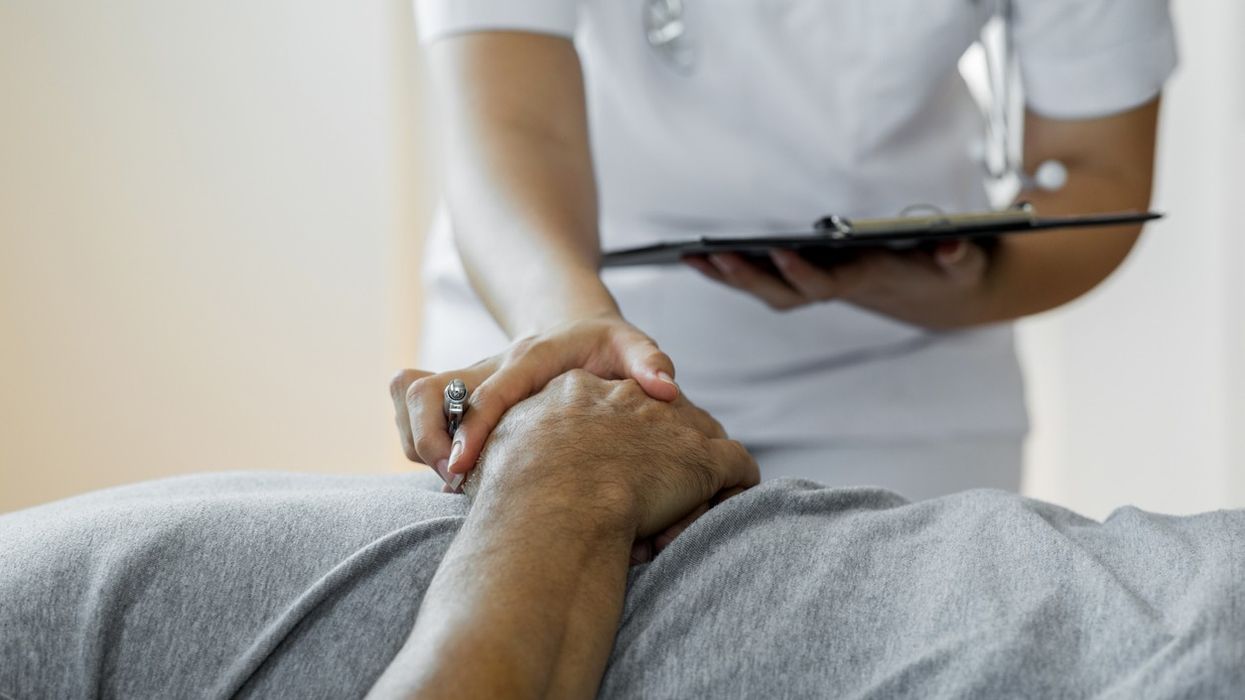ASIAN faith leaders and doctors are divided on whether there should be a law change to allow assisted dying in the UK.
A bill to legalise helping someone to die in Scotland was published at Holyrood by the Scottish Liberal Democrat MSP Liam McArthur.
McArthur’s bill, which will offer terminally ill adults help to end their lives, is set to be debated by politicians in the autumn and voted on next year.
Currently, assisting or encouraging another person to take their own life is an offence in England, Wales and Northern Ireland with a maximum prison sentence of 14 years. In Scotland, helping someone to kill themselves could lead to prosecution for crimes including murder and culpable homicide.
At the end of July, BBC reported that former Labour justice secretary Lord Falconer introduced a bill in the House of Lords under which terminally ill adults with six months or fewer to live can get medical help to end their own lives.
Health secretary Wes Streeting told the BBC’s Radio 4 Today programme he was “uncharacteristically undecided” on the subject, but said the “time had come” for a debate on the matter.
Sikh and Hindu groups have suggested assisted dying should be allowed in some circumstances, while Muslim groups say Islam opposes any form of euthanasia.
Lord Rami Ranger CBE, a businessman and chairman of the British Sikh Association, told Eastern Eye: “I support assisted end-of-life once doctors and loved ones have confirmed that the person has no chance of recovery and his or her condition will continue to deteriorate further.
“It is important that we do not prolong the suffering of individual and the family once there is no hope of a person ever getting better and their condition will continue to persist or deteriorate with time.”
When he was Labour leader, Sir Keir Starmer said he was “committed” to allowing a vote on decriminalising assisted dying if the party won the general election. In July he said MPs would have a free vote on the issue.
Downing Street previously said it would be up to parliament to decide whether to debate assisted dying again.
Dr Salman Waqar, president of The British Islamic Medical Association, said his organisation is “extremely concerned” about proposals to legalise assisted suicide and euthanasia.
He told Eastern Eye: “Complex physical and emotional suffering can be effectively managed by palliative care professionals, without shortening people’s lives.
“Assisted dying may reduce communities’ trust in health services, and goes against the professional conduct based on the ethical principle ‘first, do no harm’. Resources, instead, should be focused into improving end-of-life care quality and access, which is a particular concern for ethnic minority communities.”
Shaykh Dr Umar Al-Qadri, of the Irish Muslim Peace & Integration Council, said in Islam “the unambiguous prohibition against suicide or assisted dying is unequivocally expressed in the Holy Qu’ran”.
The last vote in Parliament on this issue was in 2015, when the Commons decided against changing the law by 330 votes to 118. Meanwhile, The Isle of Man moved closer to introducing assisted dying after a historic vote in May.
A bid to prevent NHS staff from having a role in assisted dying was rejected by members of the House of Keys.
Rajnish Kashyap, general secretary of the Hindu Council UK, said: “Some may argue that a managed death primarily affects the physical body and does not directly impact the eternal essence of the individual. The religion embraces the concepts of karma, the law of cause and effect, dharma, the righteous path or duty, and ahimsa, a commitment to non-violence, which may conflict with a managed death.
“Hindu scriptures provide examples where suicide is recommended or permitted under specific circumstances, such as restitution for crimes or to avoid extreme shame or suffering.
While these instances may not directly relate to euthanasia, they do offer important precedents for considering end-oflife decisions within a moral framework.
“Ultimately, discussions about managing death in Hinduism require careful reflection on these philosophical principles and their application to specific situations of suffering and end-of-life care. Decisions are, therefore, personal after due contemplation of the situation.”
MPs are also divided on whether England should follow Scotland’s lead and consider a law change.
Prior to the July election, Rupa Huq, Labour MP for Ealing Central and Acton, said: “When it comes to abortion, I am very pro-choice, but last time we voted on this subject [assisted dying] I actively abstained — voted yes and no — and was relieved that the status quo was upheld.
“With the Hippocratic oath and other things, we are just massively torn on this one, despite the opinion polls.”
Labour MP Sir Stephen Timms said: “It seems to me that legalising assisted dying would impose a terrible dilemma on frail people, elderly people and others when they are at the most vulnerable point in their lives, especially on conscientious frail people who do not want to die but do not want to be a burden.
“I do not think there is any way to avoid imposing that dilemma. The NHS should be there to protect those people.
“It is reported that in Oregon since 2017, over half the applicants for assisted dying have applied not because they want to die but because they feel like a burden.
“The next time we have a government committed to austerity, the temptation to cut health service costs by allowing people to choose to end their lives in a wider set of circumstances, instead of funding their care, would, I fear, be irresistible.”




